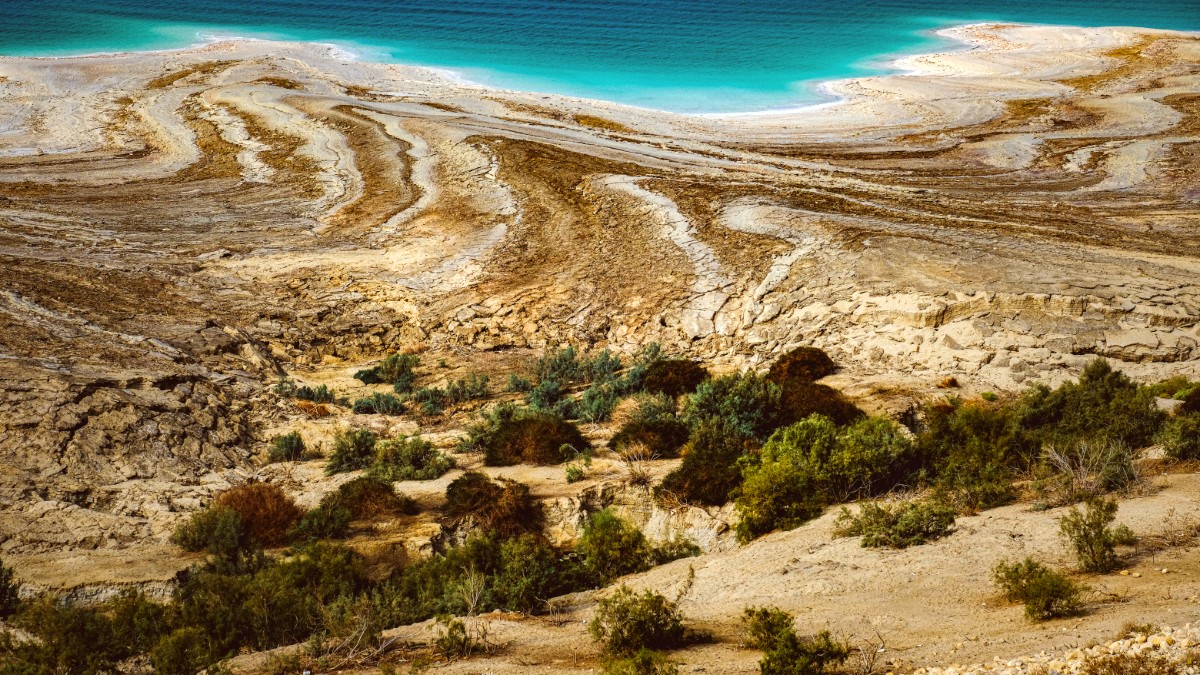
The Dead Sea's desert setting provides a dramatic backdrop for various outdoor adventures, notably hiking and exploring natural reserves.
Offers a range of trails: David's Waterfall Trail (easy, short, popular), Arugot Stream Trail (moderate, longer, with water crossings), Dry Canyon Trail (challenging, scrambling).
Snake Path (moderate to challenging, a steep ascent best done for sunrise, requires good physical condition). Roman Ramp Path (easier but longer, accessed from the western side near Arad, offering a less strenuous climb).
Known for its adventurous canyoning and hiking trails through water-filled gorges. Siq Trail (entry-level water trail). Malaqi Trail (more challenging, often requires rappelling and guides). These trails require specific gear and are only accessible seasonally, typically from April to October.
Always observe warning signs regarding sinkholes, especially in less-monitored beach areas. Stay within designated safe zones.
Opportunities for deep cultural immersion are more prevalent in nearby cities than directly at the Dead Sea resorts, which cater more to wellness tourism.
Limited directly at the Dead Sea. Some resorts might host evening entertainment, but these are for leisure rather than deep cultural study.
Limited directly at the Dead Sea resorts. Opportunities exist in surrounding Bedouin communities or local villages (e.g., near Arad in Israel, or around Madaba in Jordan) to experience local life.
Learning Hebrew or Arabic is not a focus of Dead Sea tourism. No major festivals are specific to the Dead Sea; regional festivals occur in nearby cities.
Learning a few basic phrases in Hebrew (Shalom, Toda) or Arabic (Marhaba, Shukran) is always appreciated by locals.
While resorts focus on wellness, nearby cities offer cultural scenes including markets, historical sites, and local dining, enriching your visit.
Consider day trips to Jerusalem, Tel Aviv, Amman, or Madaba for comprehensive cultural experiences beyond the immediate Dead Sea area.
The Dead Sea is world-renowned for its relaxation and wellness offerings, drawing visitors seeking therapeutic benefits and rejuvenation.
Hamamat Ma'in (Ma'in Hot Springs) in Jordan, a relatively short drive from the Dead Sea, offers natural therapeutic waterfalls and pools, providing a different kind of mineral-rich bathing experience.
Some resorts or independent operators offer yoga and wellness retreats that incorporate the benefits of the Dead Sea environment, focusing on holistic health and mindfulness.
The use of Dead Sea minerals for skin, joint, and respiratory conditions is an ancient practice, drawing on centuries of traditional healing knowledge.
Resorts offer private beach access to the Dead Sea for exclusive guest use, complete with fresh water showers.
Large freshwater swimming pools available at all major resorts, offering a refreshing alternative to the Dead Sea itself.
Some public beaches have basic facilities for floating and relaxation. Always be aware of sinkhole warnings in less-monitored areas.
The Dead Sea region's entertainment and nightlife options are generally limited, reflecting its focus on relaxation and wellness.
Nightlife involving nightclubs and dancing is not a feature of the Dead Sea region. The ambiance is generally quiet and peaceful, focusing on rest and rejuvenation.
These concepts are not applicable to the Dead Sea area. The region does not have a concept of dedicated bar districts.
Mostly limited to hotel bars and lounges within the resorts, offering a relaxed setting for drinks and conversation, but do not expect bustling late-night activity.
The ambiance is generally quiet and peaceful, focusing on rest and rejuvenation rather than bustling nightlife. Enjoy a serene evening by the sea.
Away from city lights, the desert environment offers excellent conditions for stargazing on clear nights, a peaceful alternative to traditional nightlife.
Enjoy resort facilities like evening spa hours, indoor pools, or quiet lounges for evening relaxation and unwinding after a day of exploration.
Alcohol availability is more restricted in Jordan, especially outside tourist areas and luxury resorts. Plan accordingly for your evening preferences.
Shopping at the Dead Sea focuses mainly on local products derived from the sea's minerals, while traditional markets are found in nearby urban centers.
Cosmetics, bath salts, mud masks, and soaps made from Dead Sea minerals are the most popular souvenirs.
Dates from the Jordan Valley plantations are sweet and make a delicious gift.
Ceramics, olive wood carvings, religious items (Israel), sand art bottles, and traditional scarves (Jordan).
Bargaining is generally not common in hotel shops or large retail stores, but might be possible in traditional markets in nearby cities if you venture out.